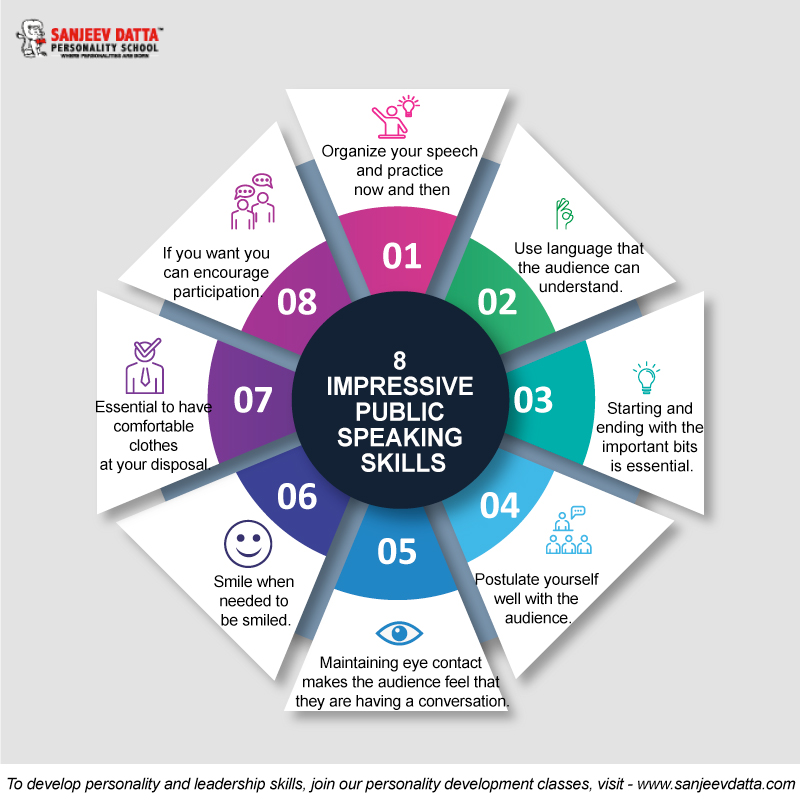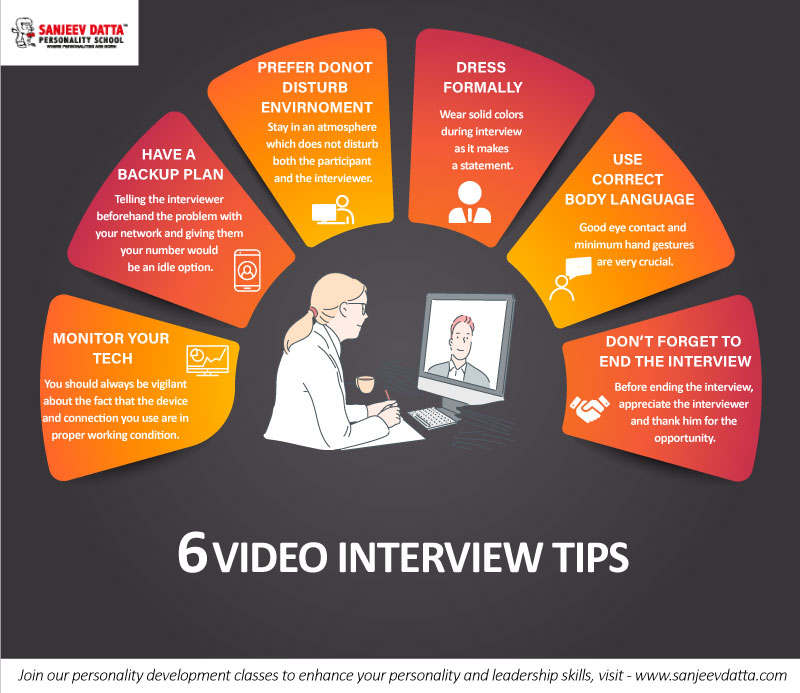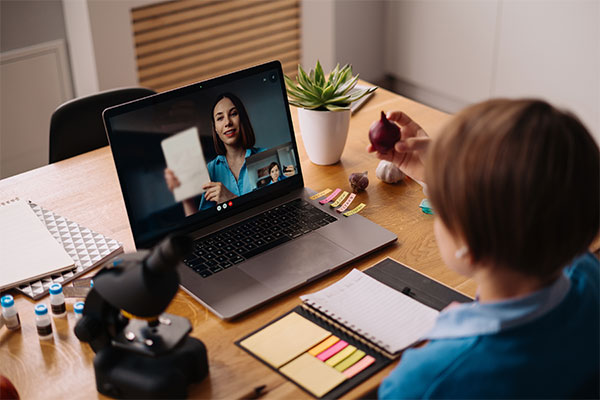In this time of COVID, there has been a rise in the need for online communication. The internet with the speedy growth and development of social media platforms like Instagram, Twitter, and many more has given a foundation for finding and enhancing opportunities for online communication. Also for formal meetings or online education, the usage of video conferencing software likes zoom and Google meet have become a trend. Therefore, in the present scenario, learning online communication skills has become necessary to survive in this competitive and fast-moving digital world.
Much of what we have learned about online communication through the development of email, web chat rooms, and learning forums applies also to social media exchanges via Facebook, Twitter, and other channels which support online interaction between members of organizations and communities.
There are two main ways of online communication namely -synchronous and asynchronous
-
Synchronous communication:
Synchronous communication means ‘real-time’ talk.
For example, communicating via instant messaging or live seminars, meetings and chatrooms.
-
Asynchronous communication:
It refers to communication in one’s own time.
For example, by replying to messages that are available and posted in an online forum.
Let us look at various online communication skills that may help you in overcoming hesitation in your professional and personal online communication interactions.
1. Accepting and Supporting People:
People cannot glance at your mood, smile, or frown as you read the online messages. So, if you do not reply, it may be offensive and they may feel weird. While building friendships, elements such as honesty and compassion play a significant role in facilitating confidence, hope, and knowledge.
“The most important thing in communication is to hear what isn’t being said.”
These characteristics are important in office relationships also. When you are helping others, move toward your interactions with an optimistic attitude. It helps in keeping clear intellect and asking doubts to help you understand where they’re coming from. Small gestures like asking someone how they are thinking, when they talk to you, or giving praise for practice well done can assist you to enable efficient relationships with both friends and managers.
2. Clear Tone and Message:
Try to avoid speaking or writing in a simple and personal manner, so avoid words like ‘It is a matter of fact that …’ or ‘it is very true that as they stop the chance of having anyone else’s perspective. The best personality development trainer help in giving detailed knowledge of such ways of communicating.
“Communication – the human connection – is the key to personal and career success.”
When you are experimenting with a course, you may want to understand someone else’s views…..if that is the case, say who they are, by stating a quote and acknowledgment.
3. Correct understanding of Views of Others:
Active listening means engaging a degree of awareness in the person who is talking to you. People who are strong listeners are well-regarded by their co-workers because of the attention and respect they offer others. While it appears simple, this is an ability that can be hard to improve and improve. You can be an active listener by concentrating on the speaker, preventing distractions like cell phones, laptops, or other projects, and by preparing questions, statements, or ideas to thoughtfully react.
Visit: soft skills to practice
4. Confidence:
In the department, people are more likely to respond to ideas that are introduced with confidence. There are many ways to appear confident such as making eye contact when you’re dealing with someone, sitting up straight with your shoulders open, and preparing ahead of time so your thoughts are polished. You would find convinced communication reaches in handy not just on the job but during the job conference process as well.
5. Responsiveness:
Whether you’re returning a phone call or mailing a reply to an email, fast communicators are regarded as more beneficial than those who are slow to respond. One method is to consider how long your reaction will take. Is this a request or question you can answer in the next five moments? If so, it may be a good idea to address it as soon as you see it. If it’s a more complex request or problem, you can still acknowledge that you’ve received the message and let the other person know you will concede entirely later. Good personality development training would help you make your responses valuable.
Online communication can skillfully be enhanced by checking for:
- Grammar and punctuation mistakes
- Bad sentence structure
- Inaccurate use of tenses
- Spelling mistakes

6. Build a Satisfying Online Profile:
Businesses need to communicate well in both particular and online settings to build and maintain optimistic sentiment within their target markets. Nevertheless, online transmission often presents additional difficulties because of the absence of nonverbal evidence.
“Communication is a skill that you can learn. It’s like riding a bicycle or typing. If you’re willing to work at it, you can rapidly improve the quality of every part of your life.”
This helps in giving a powerful platform for improving online communication skills. By focusing on a clear and precise story, as well as on conveying a liking for your customers, you can start a talk that would attain a level of online professionalism and in turn, build a connection with the population and generate trust.
Visit: interpersonal skills for interview
Practicing these online communication skills will improve your communication skills both online and offline. At our personality development classes, we offer:
- INTERVIEW TRAINING
Interviewing skills are actions candidates take during job interviews that make them stand out. These actions can include proper interview behavior, controlling nervousness or asking intelligent questions. - LEADERSHIP
The action of leading a group of people or an organization, or the ability to do this. - PRESENTATION TRAINING
Presentation training or presentation skills training refers to various types of training to develop the necessary skills for communication. - SOCIAL BOLDNESS
Not hesitating or fearful in the face of actual or possible danger or rebuff; courageous and daring. - DRESSING ETIQUETTE
The ability to dress well is Tasteful Dressing. - OFFICE ETIQUETTE
Work etiquette is a code that governs the expectations of social behavior in the workplace. - COMMUNICATION SKILLS
The ability to talk to, influence the others which is appealing to the others. - ENGLISH SPEAKING
The ability to speak properly in English in front of everyone. - TIME MANAGEMENT
Ability to use one’s time effectively or productively, especially at work. - TEAM BUILDING
The process of causing a group of people to work together effectively as a team to increase motivation and promote cooperation - PERFORMANCE ENHANCER
It is used to improve any form of activity performance in humans. - SOFT SKILLS
Personal attributes that enable someone to interact effectively and harmoniously with other people. - GOAL SETTING
The process of identifying something that you want to accomplish and establishing measurable goals and timeframes. - CAREER COUNSELLING
Career Counseling is a process that will help you to know and understand yourself and the world of work in order to make career, educational, and life decisions. - LISTENING SKILLS
The act of mindfully hearing and attempting to comprehend the meaning of words spoken by another in a conversation or speech. - MEDITATION
The action or practice of meditating.
For more details, contact us now!









